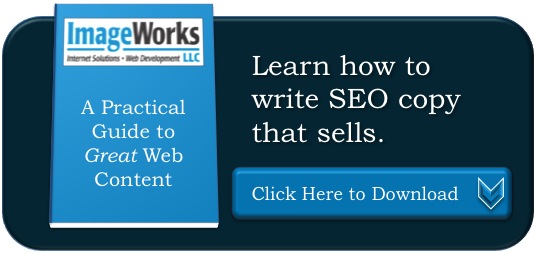 Are you struggling to optimize your website or communicate with the search engine optimization (SEO) company you've hired to run your SEO campaign? Terminology shouldn't stop you from being able to optimize your site to its fullest potential. The best way to get the most out of your SEO experience is to take the time and learn about it. This ensures that you can effective communicate with your marketing and technical teams. Here's a list of essential SEO terms to get you started!
Are you struggling to optimize your website or communicate with the search engine optimization (SEO) company you've hired to run your SEO campaign? Terminology shouldn't stop you from being able to optimize your site to its fullest potential. The best way to get the most out of your SEO experience is to take the time and learn about it. This ensures that you can effective communicate with your marketing and technical teams. Here's a list of essential SEO terms to get you started!
Alt tag -- a description or tag of an image in your website's HTML coding. Alt tags are a great way to add keywords to images. They also ensure that search engines can properly read your images.
Anchor text -- The anchor text is the actually text within a link on your website. Mostly, these links will appear dark blue (or purple if you have already clicked on it) Normally, this text is used to help search engines determine what your page is about. It also provides users with information about what they will be reading if they decide to click it.
Blog -- A blog is a part of your website where your company can regularly publish content. Blogs are a great way to enhance your SEO as your content can be keyword rich. Each new blog post is also a new page for search engines to recognize you for.
Conversion form -- This is a form which you can put on your website in order to collect information about your site visitors. If you collect contact information, or pertinent information about what each visitor is looking for, it makes converting visitors into leads easier.
CSS (Cascading Style Sheets) --This is the part of your code that defines how different elements of your website will appear. For example, it can change how headers, links, images, and more look on your site.
Domain -- The domain is the main web address (URL) for your site. So for us here at ImageWorks it would be www.imageworksllc.com :)
Headings -- Headings are text that is presented in a larger or bolder font style than other text. This makes the text stand out, usually to draw attention to headlining information. This text is usually placed inside a heading tag such as H1 or H2 within your website.
HTML -- HTML is the code that your website is written in which search engines read. Keeping your HTML as clean as possible is important, that way search engines can read your site as easily as possible.
Inbound Link -- This is a link from one site into another. Sometimes these kinds of links can improve your SEO, especially if you are linking to a site that has a high rank.
Internal Link -- These kinds of links are links from one page to another within the same website. For example, you may have a link from your homepage to your blog, or services page.
Javascript -- This is a scripting language that website administrators use to apply different effects to the content on their websites. It particularly applies to how users view and browse through content. Some search engines have difficulty reading content inside of Javascript so it may not always be your best option for your SEO campaign.
Keyword -- A keyword is any word that a user enters into a search engine. Each of your web pages should be optimized so that your site is easily accessible for visitors searching for these specific keywords.
Long Tail Keywords -- These keywords are more like keyword phrases. Usually a long tail keyword is a phrase you want to rank for that needs more than just one word. For example, say you want to rank for SEO Company, this can be used as a long tail keyword rather than just SEO and Company separately. Most long tail keywords are easier to rank for.
Meta Description -- This is a brief description of 160 characters or fewer that describes the content of a page, and entices users to visit. It can also act as a sample of your content in the search engine results page.
PageRank -- How good are you at SEO? Well, the page rank will tell you exactly how good you are. Page rank is assigned by Google, and is measured by a number 0-10.
PPC -- PPC, or paid per click, is an advertising tactic where marketers can put an ad on a website and pay that website each time a visitor clicks on that ad. If you would like an example of this take a look at Google Adwords.
SERP -- SERP, or search engine results page, is the page you receive after entering a keyword into a search engine.
Traffic -- The visitors that view your website.
Interested in taking your SEO to the next level? Take a look at our guide to learn how to write SEO copy that sells.

